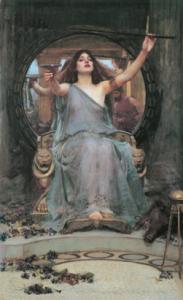Some never enjoy the good things of God and His creation. Others wallow in the good things they desire. Both refuse to see what is real and chase the wind. The first refuses to see the holiday and second the limits of the holiday and the joys of work.

Desire wanders, darts to new places, so even if one placates the feeling, eats the extra food, has the extra drink, this accomplishes nothing. Tomorrow comes and keeps coming. One cannot ignore what is plain to see: One must recognize what is true, good, and beautiful and delight in life’s delights. Enjoy what is enjoyable, but in light of tomorrow.
A Moderate Party
Last night I rooted for the Pack as they took on the ‘Aints. I might have stayed up too late, partied too hard, and when they won, rejoiced in “our” victory. Yet the alarm would ring at six in the morning regardless. The temptation is strong to think that this game is worth the late night, ignoring class preparation, and evening devotions.
No.
Last night I realized that tomorrow would come when would Alexa stop my overnight audiobook (Bram Stoker!) by sounding the alarm. This was seeing correctly.
The workday began. The bill for the Packer party would have come due, instead there was a pleasant memory without any job left undone. If I had been immoderate, the small pleasures of Sunday Night Football would have been spoiled. Parties are good, but immoderate parties are no good. The game was not worth the next day.
We must see clearly knowing that, whatever we might dream during the Packer game, tomorrow will come. Oddly, doing my duty and preparing for class reminded me to be moderate and not simply do as desire bid me to do!
How Shakespeare Helped
Shakespeare’s Twelfth Night was the subject : a play tied to a day and date. Discussing the twelfth day of Christmas in September might seem inappropriate if the play itself did not seem to ignore the last day of Christmastide! The play has a date for a title, a date tied to a party, the end of the great feast of Christmas and the start of Epiphany. The end of Christmas marks the revelation of what God did. Christmas, all twelve days, is a preparation for revelation, the Epiphany: Jesus revealed as God’s Son in Baptism.
Shakespeare recognizes from the first line of the play that we cannot linger at the party. We must “play on” and live our lives prudently in the feasting. The party, however much we try to keep it going, will end and then the work of the beloved community begins.
This is not to say the music, the joy, is wrong. We should enjoy each song, each pleasure proportionately. That is seeing what is there in life. One can have a treat without eating the whole bag! After all, a refusal to have a good time when a good time is there to be had is always failing to see what is. Twelfth Night features a puritan who refused to party and a wastrel who does nothing but carouse: neither finds true love.
The feast goers of Heaven, and Paradise parties, have clear sight. They know when to stop, when to continue, what to do. They see what is, so know what should be done, what should not be done. They know when good fun becomes decadence.
The fundamentalist, blinded by pride, judges the great feast. The decadent is too drunk to make it.
The man and woman who is saved, who find love, see clearly what is there.












